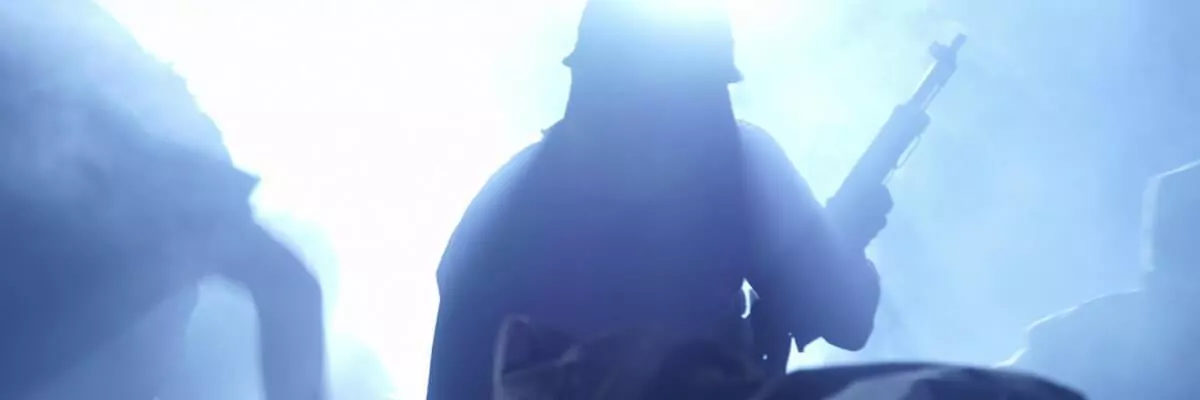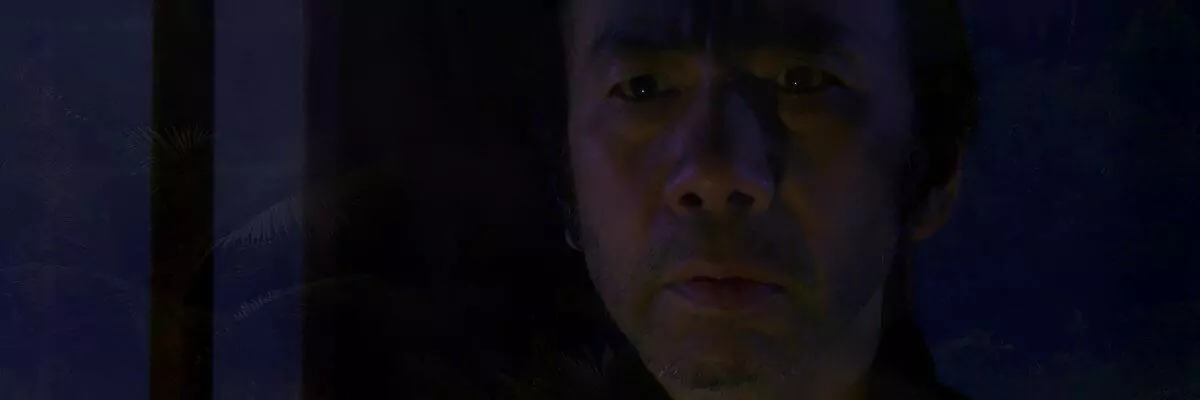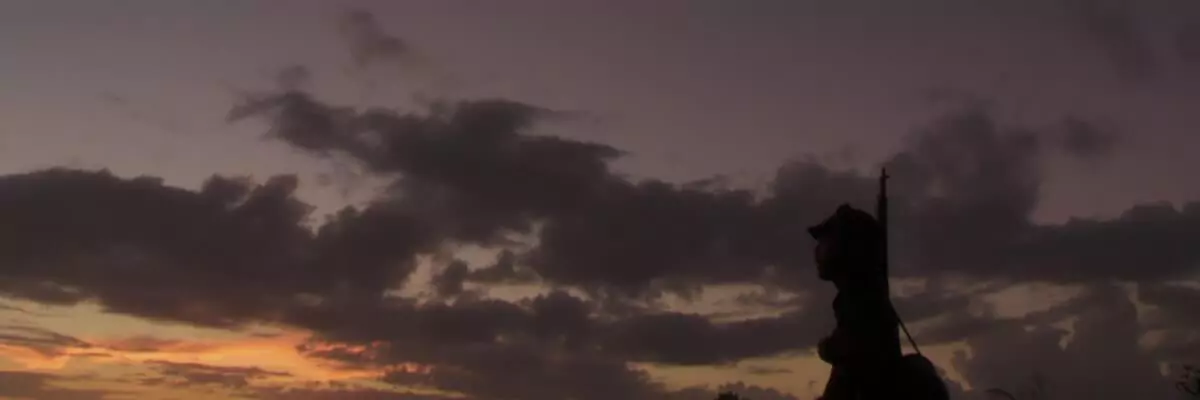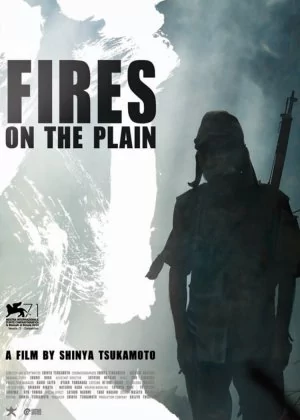Fires on the Plain
It's been a while since I watched a new Shinya Tsukamoto film. Kotoko and Fires on the Plain [Nobi] were released just 3 years apart, but somehow Tsukamoto's latest got stuck in release limbo. Thankfully Third Window Films stepped up to the plate (again) and opened up the film to the English-speaking world. And it's a good thing they did, because Fires on the Plain is vintage Tsukamoto. True bulldozer cinema that lashes out violently and constantly, yet purposefully. It's the kind of film only Tsukamoto is able to make.

Tsukamoto has been very vocal about the fact that Fires on the Plain is not a mere remake of Kon Ishikawa's 1959 film, but rather a new adaptation of Shohei Ooka's book. I haven't seen Ishikawa's film, nor did I read Ooka's book, yet it shouldn't come as too big of a surprise that Tsukamoto simply did what he's known to do and made the material his own. While he borrows the premise from the original, he wanders off in a direction that cuts right into Tsukamoto territory, steering this film away from any potential remake discussions. Fans of the existing film and/or book shouldn't expect to see a faithful adaptation though.
When you strip everything away, Fires of the Plain is the umpteenth variation on the classic "war is hell" premise. There's some pretty stiff competition in that particular niche, with films like Apocalypse Now and Full Metal Jacket towering above their competitors. But where those films are still framed in a somewhat comfortable and reassuring narrative (firmly taking their audience by the hand while slowly submerging them into chaos), Tsukamoto dives right in and smears out all the vileness over a period of 90 minutes. There are no breathers here, no easy way outs, just the grim and hellish surrealism of war.
The film starts with a sick soldier being cast out of his garrison. The nearby field hospital doesn't really want to care for him either as they're dealing with worse off patients, so with no place to go the soldier starts wandering around aimlessly. He has no rations, no companions and worst of all, no real purpose. On his trip through the Philippine jungle he encounters nothing but death and destruction. The few people who did survive the battles are either begging him to be killed or are scheming to kill the few remaining survivors. Slowly the soldier starts to lose his mind.

Tsukamoto's body of work is known for the overall intensity it harbours. The visual aspect has always played a substantial part in establishing that intensity and he's not changing course with Fires on the Plain. I do have to say that the overtly digital look isn't doing the film many favors. The colors and lighting are harsh, the framing appears a little random and at times the chaotic cinematography feels slightly out of control. Luckily the editing is top notch and the intensity remains very much intact, but Fires on the Plain isn't one of Tsukamoto's nicest-looking films.
The score too isn't Tsukamoto's finest. There are some odd musical choices that don't do much to help the film forward. It's a bit surprising, because Tsukamoto is known for incorporating strong and unique scores, which are a defining element in his overall aesthetic, but here it just never truly clicked. Luckily the sound design is outstanding, with lots of accentuated sounds adding an extra layer of surrealism to the film. It still makes for a dense and suffocating experience, it's just that there is some untapped potential.
The acting on the other hand is exquisite. It's not the first time Tsukamoto takes on the lead role in one of his own films, but he's really front and center in Fires on the Plain. A good thing then that it's probably his best performance to date. His descent into madness is quite simply horrifying. You can see his physical and mental state deteriorating, as the anguish of his existence grows more painful by the minute. It's a very physical performance, which goes well with Tsukamoto's style of acting. The rest of the cast isn't too bad, but none of them have truly substantial parts.

The challenge of Tsukamoto's Fires on the Plain is its utter disregard for direction and context. You're thrown into a story (/war), piggybacking onto a character who ends up being little more than a stand-in for the audience. He is clueless as to where to go, what to do or how to continue, but he's alive and not planning on dying. It's all about survival, but with no clear way forward some people are bound to feel a little helpless and lost. Fires on the Plain is a pretty demanding film, but the pay-off is all the better because of it.
This is not a very happy film, nor is it very subtle. The first 15 minutes are a little tough and disorienting, but as things get increasingly dire for Tsukamoto's character the film starts to really creep under your skin. Tsukamoto pushes through after that and Fires on the Plain might end up devouring some of its audience, but in the end that's exactly what this film was aiming for. Not as stylistically accomplished as some of his earlier work, but a dense and harrowing experience nonetheless. Comes highly recommended for fans of Tsukamoto, others might want to reconsider, or at least choose their timing wisely.
